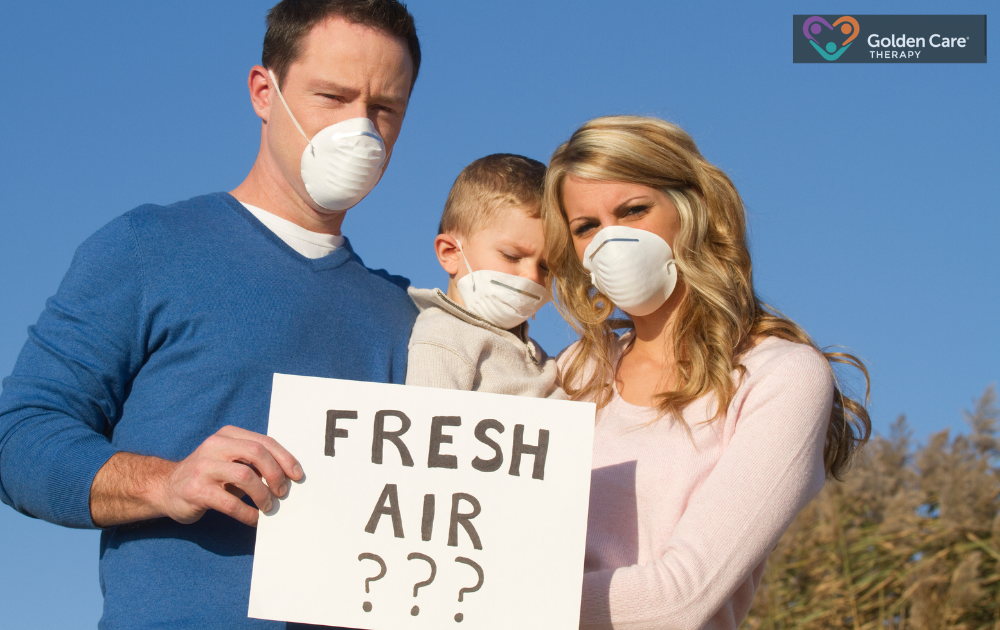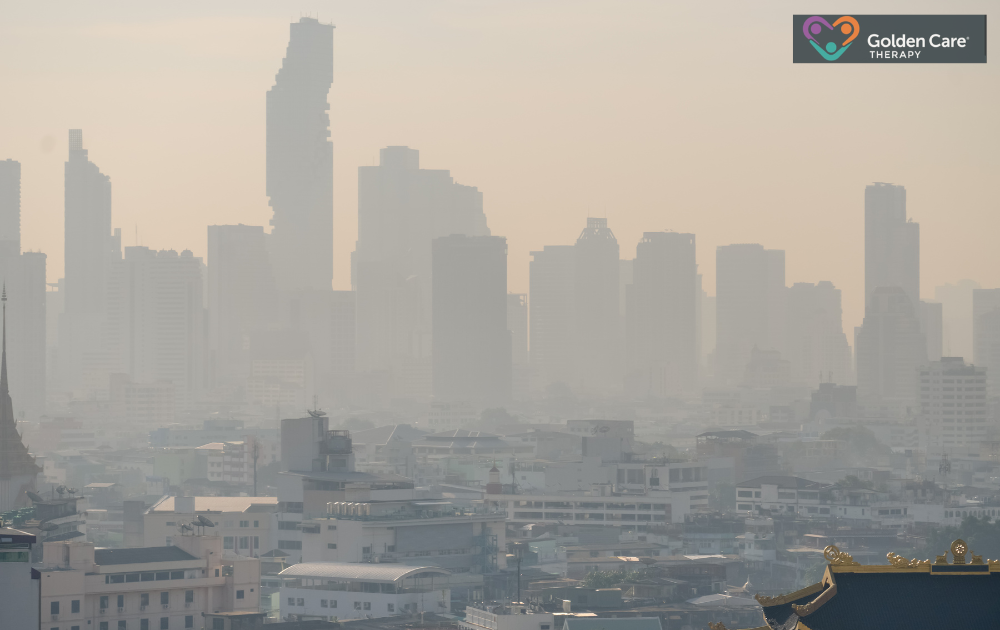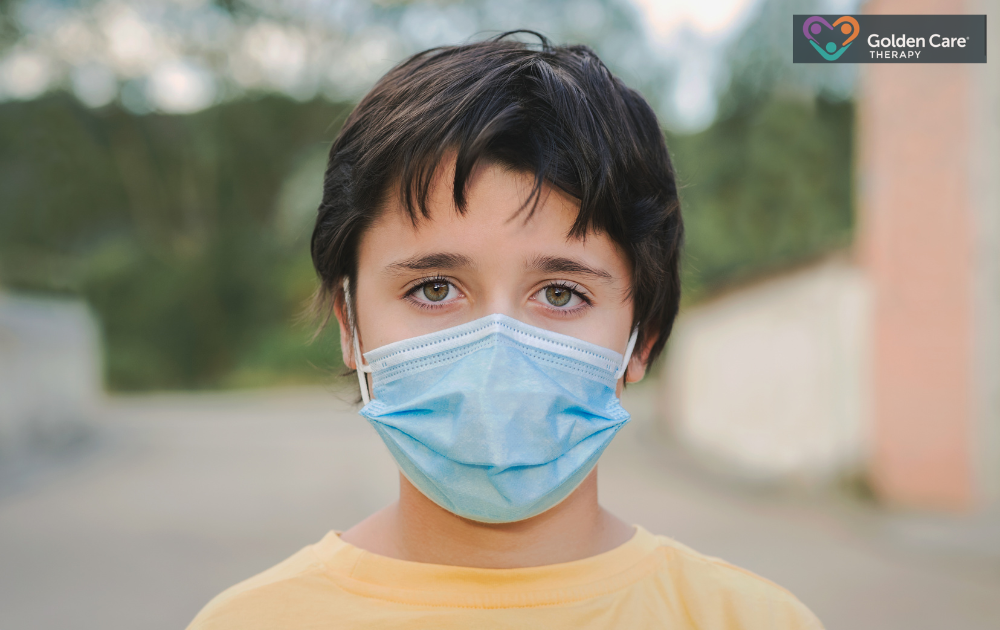The potential connection between air pollution and autism has been a topic of increasing interest and concern among researchers and the general public. While the exact causes of autism are not fully understood, it is believed to result from a combination of genetic and environmental factors.
Among these environmental factors, air pollution has emerged as a significant area of study.

Does Air Pollution Cause Autism?
Yes, there is evidence suggesting that air pollution may be a contributing factor to the development of autism. Research has shown that exposure to high levels of air pollution, particularly during pregnancy, can affect brain development in the fetus.
Pollutants such as fine particulate matter (PM2.5), nitrogen dioxide (NO2), and polycyclic aromatic hydrocarbons (PAHs) have been associated with an increased risk of autism spectrum disorder in children. These substances can cause inflammation and oxidative stress in the brain, potentially leading to neurodevelopmental disorders.
However, it is important to note that air pollution is not the sole cause of autism. Autism is a complex condition with multiple contributing factors, including genetic predisposition and other environmental influences. While air pollution may increase the risk, it interacts with a variety of other risk factors that collectively contribute to the likelihood of a child developing autism.
Therefore, while air pollution is a significant environmental risk factor, it is one part of a larger puzzle in understanding the causes of autism.

The Role of Air Pollution in Autism
Air pollution consists of a complex mixture of particles and gases emitted from various sources, including vehicles, industrial facilities, and natural processes. Common pollutants include particulate matter (PM), nitrogen dioxide (NO2), sulfur dioxide (SO2), carbon monoxide (CO), and various volatile organic compounds (VOCs). These pollutants can have numerous adverse health effects, particularly on the respiratory and cardiovascular systems. Emerging evidence suggests that they may also impact neurodevelopment.
Several studies have investigated the potential link between prenatal and early-life exposure to air pollution and the development of autism. The rationale behind these studies is that air pollutants can cross the placental barrier and reach the developing fetus, potentially causing neuroinflammation and altering brain development.
Key Studies and Findings
One notable study found a significant association between exposure to fine particulate matter (PM2.5) during pregnancy and an increased risk of autism in children. The study analyzed data from over 100,000 children and their mothers, adjusting for various confounding factors such as maternal age, socioeconomic status, and smoking.
The researchers discovered that children born to mothers exposed to higher levels of PM2.5 during pregnancy had a greater likelihood of being diagnosed with autism.
Another important study explored the relationship between traffic-related air pollution and autism. This study focused on children born in California and found that those living in areas with high levels of traffic-related pollution were more likely to develop autism. The researchers suggested that exposure to pollutants such as diesel exhaust particles and NO2 might contribute to the risk of autism.
Further research by the National Institute of Environmental Health Sciences (NIEHS) has supported these findings. Their studies have shown that exposure to air pollution, especially while the brain is still developing during utero and early childhood, is associated with an increased risk of autism.
The NIEHS researchers have emphasized the need for more studies to understand the mechanisms by which air pollution might influence neurodevelopment.
Biological Mechanisms
The exact biological mechanisms linking air pollution to autism are not fully understood, but several hypotheses have been proposed. One key mechanism involves neuroinflammation. Air pollutants can induce inflammatory responses in the body, including the brain. Chronic inflammation can disrupt normal brain development and function, potentially leading to neurodevelopmental disorders like autism.
Another proposed mechanism is oxidative stress. Air pollution can generate reactive oxygen species (ROS) in the body, leading to oxidative stress. This oxidative stress can damage cells and tissues, including those in the brain, and interfere with normal developmental processes.
Additionally, some studies suggest that air pollutants may disrupt the endocrine system. Certain pollutants, such as polycyclic aromatic hydrocarbons (PAHs) and phthalates, are known endocrine disruptors. These chemicals can interfere with hormonal signaling pathways that are crucial for brain development.

The Importance of Timing and Exposure
The timing and duration of exposure to air pollution appear to be critical factors in determining the risk of autism. Prenatal exposure, particularly during the third trimester of pregnancy, has been identified as a particularly sensitive period. During this time, the fetal brain undergoes rapid development and is more vulnerable to environmental insults.
Early childhood exposure is also significant. The first few years of life are crucial for brain development, and exposure to harmful pollutants during this period can have lasting effects on cognitive and behavioral outcomes.
Public Health Implications
The potential link between air pollution and autism has important public health implications. If air pollution is indeed a contributing factor to the development of autism, reducing exposure to pollutants could help mitigate the risk. This highlights the importance of implementing and enforcing stricter air quality regulations to protect vulnerable populations, especially pregnant women and young children.
Efforts to reduce air pollution can include transitioning to cleaner energy sources, improving fuel efficiency in vehicles, and implementing policies to reduce industrial emissions.
Additionally, individuals can take steps to minimize their exposure to air pollution, such as avoiding outdoor activities on days with high pollution levels, using air purifiers indoors, and advocating for cleaner air in their communities.

Challenges and Future Directions
While the evidence linking air pollution to autism is growing, there are still many challenges and uncertainties in this area of research. One major challenge is the complexity of measuring and quantifying exposure to air pollution.
Pollutant levels can vary widely depending on location, weather conditions, and time of year. Accurately assessing an individual’s exposure over time is difficult but essential for understanding the potential health effects.
Another challenge is isolating the effects of air pollution from other environmental and genetic factors. Autism is a multifactorial disorder with numerous potential contributors. Studies must carefully control for confounding variables to draw accurate conclusions about the role of air pollution.
Future research should aim to address these challenges by using advanced exposure assessment methods, such as personal air monitoring devices and satellite data. Longitudinal studies that follow individuals over time can also provide valuable insights into the long-term effects of air pollution on neurodevelopment.
The potential connection between air pollution and autism is a complex and evolving area of research. While there is growing evidence suggesting that exposure to air pollutants may increase the risk of autism, more research is needed to fully understand the underlying mechanisms and causal relationships.
Public health measures to reduce air pollution and protect vulnerable populations are essential in mitigating potential risks.
As our understanding of the relationship between air pollution and autism deepens, it will be crucial to continue advocating for cleaner air and healthier environments for all. For support and specialized care, consider contacting Golden Care Therapy, offering expert ABA therapists in NJ, New York, Georgia, and Indiana. Contact us today to book an appointment and learn more about our services.
Sources:



